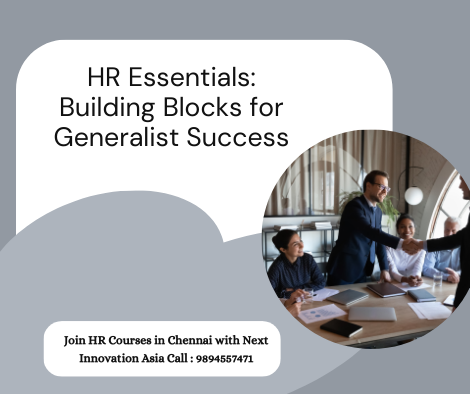1. Core HR Functions
- Recruitment and Selection: Understand the recruitment lifecycle, from job postings to interviews and onboarding. Learn to align hiring processes with organizational needs.
- Employee Relations: Develop skills in managing workplace relationships, handling grievances, and fostering a positive work environment.
- Compensation and Benefits: Gain knowledge in designing competitive salary structures, managing benefits programs, and ensuring compliance with regulations.
- Training and Development: Learn to identify training needs, create development programs, and evaluate their effectiveness in enhancing employee skills.
2. Legal and Ethical Standards
- Employment Laws: Familiarize yourself with key employment laws and regulations, including labor rights, anti-discrimination laws, and health and safety standards.
- Ethical Practices: Promote ethical behavior in the workplace by understanding and implementing best practices for fairness, transparency, and integrity.
3. Performance Management
- Goal Setting: Learn to set clear, measurable performance goals that align with organizational objectives.
- Feedback and Appraisal: Develop skills in giving constructive feedback, conducting performance reviews, and managing performance improvement plans.
4. Organizational Development
- Change Management: Understand strategies for managing organizational change, including communication plans and employee support mechanisms.
- Culture Building: Learn to foster a positive organizational culture that aligns with company values and enhances employee engagement.
5. HR Metrics and Analytics
- Data Analysis: Acquire skills in analyzing HR metrics to make informed decisions, track performance, and measure the impact of HR initiatives.
- Reporting: Learn to prepare and present HR reports that provide insights into key areas such as turnover rates, employee satisfaction, and training effectiveness.
6. Communication Skills
- Interpersonal Communication: Develop effective communication skills for interacting with employees, management, and external stakeholders.
- Conflict Resolution: Learn techniques for resolving conflicts and managing difficult conversations in a professional manner.
7. HR Technology
- HRIS Systems: Gain familiarity with Human Resource Information Systems (HRIS) for managing employee data, payroll, and benefits administration.
- Technology Trends: Stay updated on emerging HR technologies and tools that can enhance efficiency and effectiveness in HR functions.
These building blocks are crucial for developing a strong foundation in HR generalist roles, ensuring a comprehensive understanding of essential HR practices and principles.
“Ready to advance your HR career? Next Innovation Asia in Chennai provides essential skills, accredited training, and job support to ensure your success. Enroll now and step into a thriving HR profession with confidence!”

